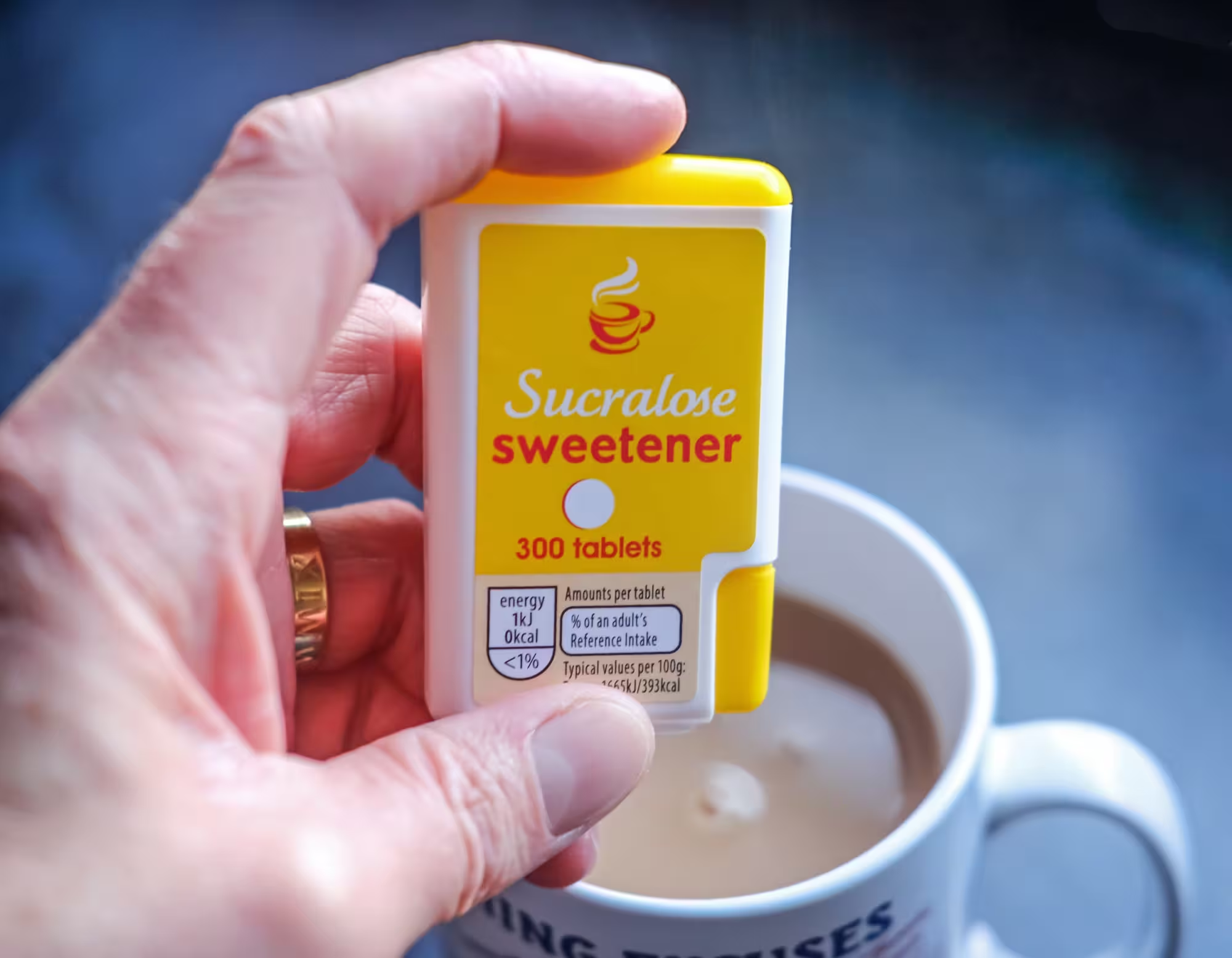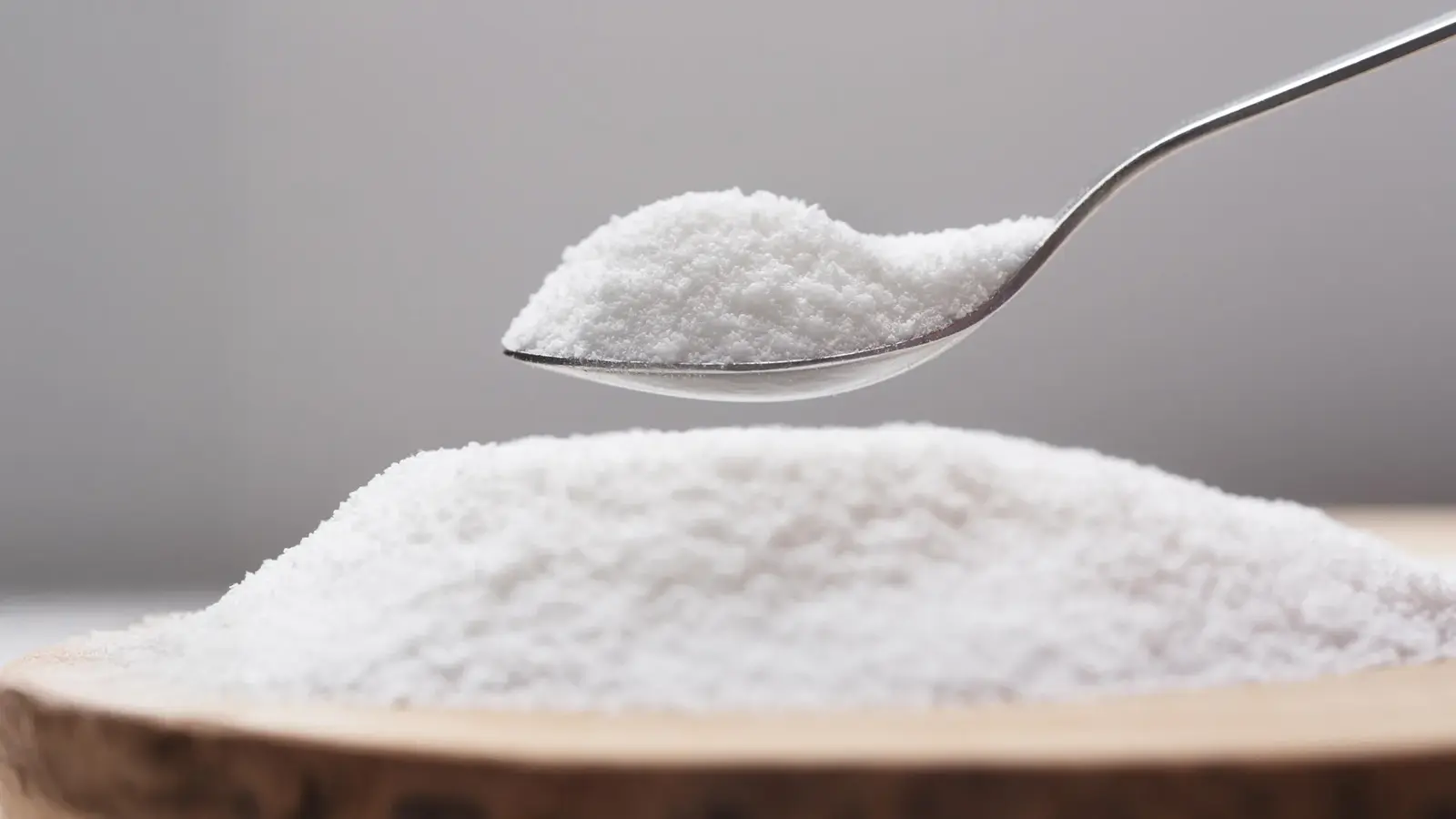6 Minutes
New evidence links sucralose to reduced immunotherapy effectiveness
Researchers at the University of Pittsburgh and UPMC Hillman Cancer Center report that high intake of the artificial sweetener sucralose can change the gut microbiome in ways that reduce levels of the amino acid arginine and impair T cell function, weakening the effectiveness of immune checkpoint inhibitor therapies. The work, published in Cancer Discovery, combines patient dietary histories with mouse experiments to show a mechanistic link between sucralose consumption, microbiome shifts, and poorer anti-PD-1 immunotherapy outcomes. Notably, supplementing with arginine or its metabolic precursor citrulline restored immunotherapy activity in treated mice — a finding that points to potential clinical interventions.
Scientific background and experimental approach
Immune checkpoint inhibitors such as anti-PD-1 reinvigorate exhausted T cells so they can identify and destroy tumor cells. T cells require multiple metabolic inputs to proliferate and carry out cytotoxic functions; arginine is a key amino acid in this metabolic network and has been shown to support antitumor T cell responses.
The Pittsburgh team combined clinical and preclinical strategies. They analyzed diet questionnaires from 132 patients with advanced melanoma or non-small cell lung cancer who received anti-PD-1 therapy (with or without chemotherapy) to evaluate associations between artificial sweetener intake and treatment outcomes. Parallel mouse experiments tested causality: animals given sucralose showed altered gut-microbiome composition, expansion of arginine-degrading bacterial species, and measurable reductions in arginine concentrations in blood, tumor interstitial fluid and stool. Functionally, these mice exhibited weaker T cell responses to anti-PD-1 therapy and developed larger tumors with poorer survival.
Key discoveries and mechanistic insights
The study's principal findings are threefold: first, high sucralose consumption correlated with poorer clinical responses and survival among patients on checkpoint inhibitors; second, sucralose altered the gut microbiome in mice in a way that increased microbial arginine catabolism and reduced systemic arginine availability; third, restoring arginine — either directly or via citrulline, which the body converts into arginine — rescued T cell function and restored anti-PD-1 efficacy in animal models.
According to the research team, the microbiome-mediated depletion of arginine limits the metabolic resources T cells need to mount effective anti-tumor responses. As a result, immunotherapies that rely on intact T cell activity can be undermined when arginine levels fall below critical thresholds.

Lead author Abby Overacre, Ph.D., emphasized patient-centered implications: patients receiving cancer therapy often face overwhelming treatment burdens, so asking them to eliminate widely used products like diet sodas may be impractical. Instead, she and colleagues propose targeted nutritional strategies — for example, arginine or citrulline supplementation — to offset microbiome-driven nutrient loss while preserving patient quality of life.
Implications for clinical practice and trial design
While the human data are observational and the mechanistic work is preclinical, the combined findings justify testing targeted supplementation in controlled trials. Citrulline supplementation is of particular interest because it raises arginine more effectively than oral arginine itself and may bypass some forms of microbial catabolism. The Pittsburgh group is planning clinical studies to evaluate whether citrulline can normalize arginine levels, reshape microbiome function, and improve checkpoint inhibitor activity in patients who consume higher amounts of sucralose.
Beyond arginine-focused strategies, these results highlight the broader influence of diet and nonnutritive sweeteners on cancer therapy outcomes. The team also plans to investigate other common sweeteners — including aspartame, saccharin, xylitol and stevia — to determine whether they too perturb microbial communities or immune metabolism in ways that affect therapy.
Expert Insight
Dr. Maya Patel, a science communicator with a Ph.D. in immunology, comments: "This study elegantly links a common dietary exposure to a specific metabolic bottleneck for T cells. The translational value is high because dietary modification is difficult for many patients; a short-term, well-tolerated supplement could be a pragmatic way to preserve immunotherapy benefit while we collect more definitive clinical evidence. It also reminds clinicians to consider asking patients about nonnutritive sweetener use when planning cancer treatment."
Related technologies, diagnostics and future prospects
The findings intersect with growing interest in microbiome-informed oncology: diagnostics that profile gut microbial composition and metabolic capacity could one day identify patients at risk for treatment resistance driven by microbial nutrient depletion. Interventions might include precision prebiotics, targeted probiotics, or metabolic supplementation with amino acids such as citrulline to restore immunometabolic balance. Additionally, metabolomic assays that measure circulating and tumor arginine could serve as biomarkers to monitor and personalize supplementation strategies during immunotherapy.
On the technological front, advances in shotgun metagenomics and metabolomics make it feasible to map the bacterial genes responsible for arginine degradation and to track how dietary agents alter those pathways. Those tools will help determine which patients are most likely to benefit from supplementation, and whether particular microbial signatures predict treatment response.
Practical guidance and caveats
At present, the evidence does not prove that sucralose definitively causes immunotherapy failure in every patient; human analyses were associative and subject to dietary-reporting limitations. Patients undergoing cancer treatment should not make major changes to their medication or supplement regimen without consulting their oncology team. However, the study supports careful consideration of diet and microbiome interactions in cancer care and provides a rationale for clinical trials testing citrulline or arginine supplementation as adjuncts to checkpoint inhibitors.
Conclusion
The University of Pittsburgh study links sucralose consumption to microbiome-driven arginine depletion and compromised T cell activity, offering a plausible mechanism for reduced immunotherapy effectiveness. Crucially, the negative effects observed in mice were reversible with arginine or citrulline supplementation, suggesting an immediately testable clinical strategy. If validated in trials, targeted metabolic supplementation could become a low-cost, low-risk adjunct to immunotherapy for patients who consume artificial sweeteners, while underscoring the importance of integrating diet and microbiome science into precision oncology.
Source: sciencedaily


Leave a Comment